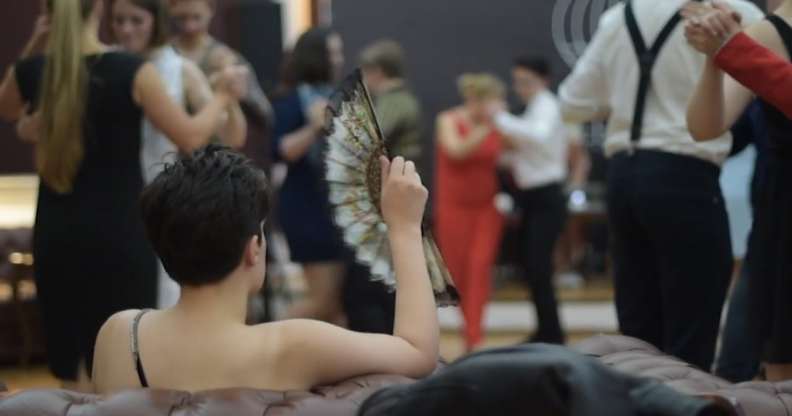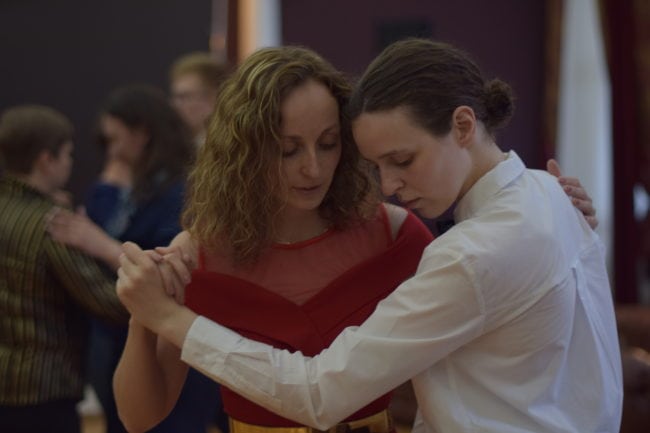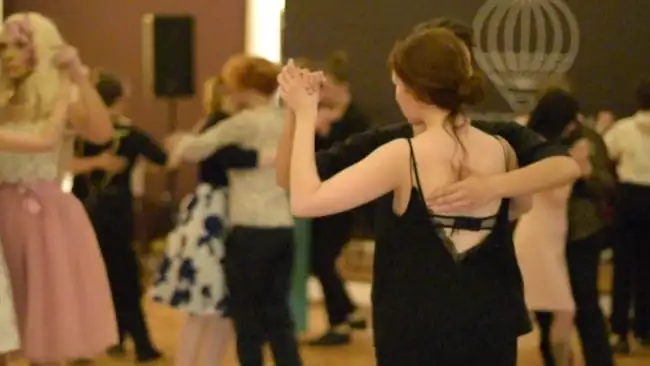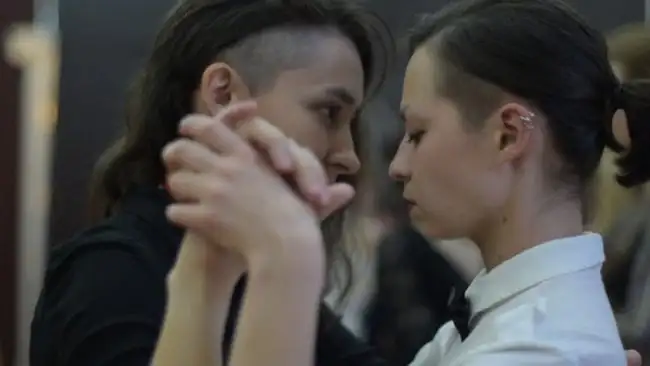Exclusive: Inside Russia’s first queer dance festival

Dancers pair up at the festival (PinkNews/Francesca Visser)
The Northern capital of Russia welcomes its first queer dance festival to the city.
“St. Petersburg is the LGBT capital of Russia,” laughs Katya, a talented dancer from Moscow, as she gets out of the club for some fresh air between a salsa and a tango dance.
We are at the fourth international queer dance festival in St. Petersburg, an event that would be unthinkable in many cities in Russia, but not in the Northern capital, where two young determined women have been successfully managing a queer dance school for over four years.
Marina Ventarron and Anna Morisot, the two organisers of the annual celebration and directors of the school, are bursting with excitement when they announce the opening of the festival, the first in the city to be dedicated to different forms of queer dances.
“My main purpose with this festival is to improve the image of queer people,” says Marina. “I’d like to make them realise that the situation can be better, that you can be yourself in our country and have a good life.”
As traditional values and gender norms continue to spike in the country and the ban on the spread of information about “non-traditional family values” to minors keeps being in place, LGBT events are scarce, and particularly hard to organise.
As according to the infamous 2014 gay propaganda law, propagation of LGBT-related information is not allowed to come to the attention of minors, the internet and in particular the social media are the only way of advertising the event.
“I think that the festival is particularly important for the queer society,” explains Soledad Nani, a Buenos Aires teacher of queer tango, who has been a regular guest of the festival from its very beginning.
“I always felt it as as a space of safety, security, and freedom that couldn’t be found elsewhere.”

Dancers pair up at the festival (PinkNews/Francesca Visser)
However, any hopes for a general change of attitude in the country still seem to be out of sight according to the Argentinian dancer.
“I think it’s hard here in Russia. Because it starts from the state, it’s not just about people, or a certain group of people, it is the state, since there are laws that forbid LGBT propaganda.”
The queer dance festival represents a great opportunity to reconsider gender roles and a much needed delightful distraction for the LGBT community of the city. Born as a tango festival four years ago, the event this year features also different dances, like kizomba, salsa, bachata and Lindy-hop, presented by dance teachers from various parts of the world.

Inside the festival (PinkNews/Francesca Visser)
For Lera Estrella, a Moscow-born bachata teacher, the existence of such a festival in her own country was a revelation. Having lived abroad for the past seven years, Lera discovered her passion for dancing during a cruise in the Caribbean where she had been working after having left her motherland.
Seduced by the Latin rhythm, but uneasy in the passive role assigned to her in these highly traditional dances she turned to the internet to find where she could learn how to lead and then founded a school in Ireland where she now lives.

The festival took place for the first time in St. Petersburg (PinkNews/Francesca Visser)
After four years of dance classes, Lera has now become a female Lead teacher and a passionate supporter of queer dancing: “Queer dancing is a dialogue, an exchange of opinions, whereas dancing that is not queer is always a monologue of the Lead.”
Besides being a dance event, the festival is also a learning experience for many of the participants, where they can revise their own definition of gender roles.
“I discovered two energies in myself and I let them free, a bit femme, a bit masculine, a bit something in between, I feel like I am a mix of many things and I find this interesting, educative and enriching,” concludes Soledad.

